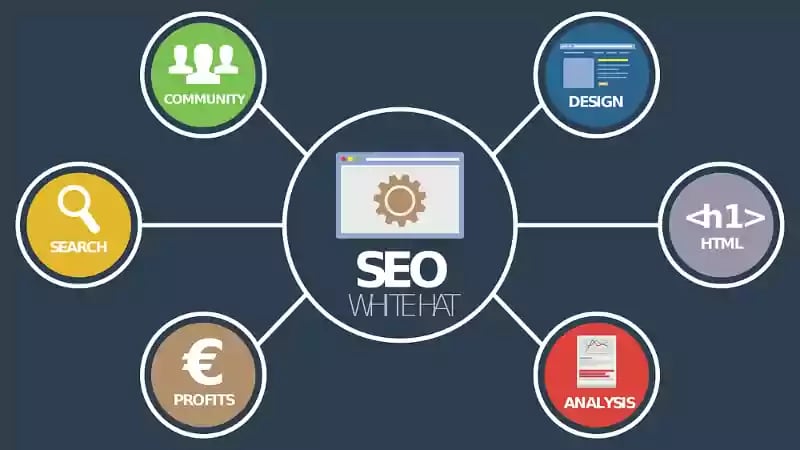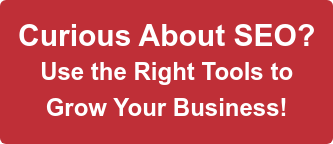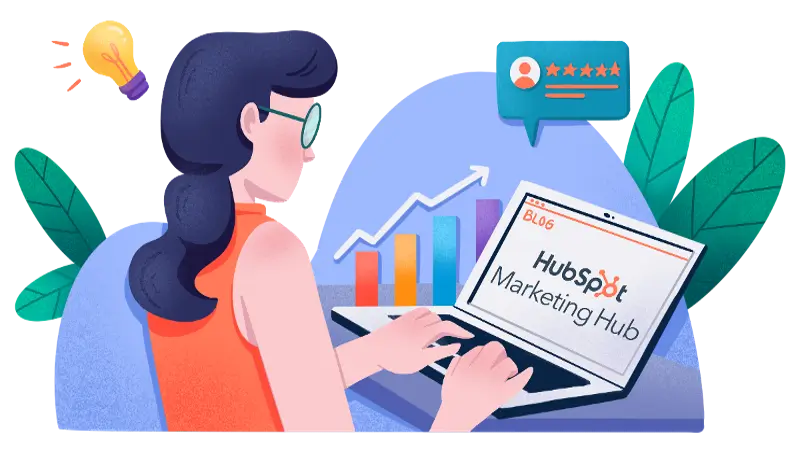SEO is one of the more hotly debated subjects in online marketing. It's simply too important not to have a solid understanding of the ins, outs, ups, and downs that make up modern SEO practices.


Why Does it Matter?
-
70% of all web traffic comes from organic search. If you want to attract potential customers to your website, optimizing it for organic search is necessary. And when it comes to improving your website's organic search ranking, on-page SEO is one of the most crucial factors to consider.
-
The average click-through rate (CTR) for the top organic search result is 19%. Ranking first in Google for a relevant keyword can significantly increase your chances of getting clicked on by potential customers. On-page SEO techniques such as optimizing your title tags, meta descriptions, and other on-page elements can help boost your click-through rate (CTR) and drive more traffic to your site.
-
A study by HubSpot found that businesses that invest in SEO see a 126% increase in website traffic and a 100% increase in leads. Implementing SEO techniques can be a game-changer for your business, boosting traffic and generating leads. Among the various SEO tactics, on-page SEO is a crucial aspect that cannot be ignored. It is the foundation of any SEO strategy and can significantly impact your website's ranking.
-
A study by Moz found that the average website that follows best practices for on-page SEO can expect a 10% increase in organic search traffic. The data demonstrates that even minor enhancements to your on-page SEO can substantially impact your website's ranking.
-
A study by Search Engine Land found that the average website that invests in off-page SEO can expect a 20% increase in organic search traffic. Off-page SEO is a powerful tool for boosting your website's ranking.
Today we will dive into the differences between on-page and off-page SEO. This is a subcategory that seems to generate a lot of questions along with a fair bit of exasperation on the part of SEO pros fielding questions about "just what are you doing over on that other site when you're supposed to be 'doing SEO' over here on our site."
For simplicity's sake, we've divided the list into groups of 5 items each. First, we'll look at some activities that fall under the category of on-page SEO techniques; then, we'll look at five off-page tactics.
On-Page SEO Activities and Techniques
As the name implies, you can do these things on your site to improve your SEO pull with the search engines. For brevity, we will use "Google" as a catch-all for all search engines.
It's simple. The #1 thing you can do to increase your site's SEO ranking is to generate fresh content regularly. And the easiest way to do that is with a blog. Not only does a blog give you a forum to share engaging ideas and engage your audience, it also gives you the following ways to goose your SEO even further.
Referring to the HTML code that identifies the page title, this phrase is often used to denote the title itself. There are two main functions the title tags serve for SEO:
-
-
-
They tell your audience what to expect when they click through to read the article (because this is the title seen on the search engine results page or SERP).
-
They tell Google what the page is about, establishing authority for your site.
-
Meta description
The meta description is what follows the title on the SERPs, so this is where you can tell your readers a bit more about the content. Only 155 characters are displayed on Google, so keep it brief and use appropriate keywords (just one or two; it's quality over quantity when it comes to keywords).
The meta description gives Google more details about the content on that page. By working a long-tail keyword here, you can help give your content something extra and help boost your authority while you're at it (because Google gives extra power to keywords found here).
Receiving a bit less attention from Google, yet just as important to pay attention to, the URL of your pages does indeed matter for SEO. The more concise you can keep them, the more pull they'll give your pages. And working on one or two short-tail keywords will ensure that they're also working the same magic on your organic search rank.
Search engines can't parse images, so there is a field called "alt text" behind any picture you see online that gives the producer a way to tell Google what the image is and how it relates to the broader topic of the page. Visitors do not see this property. However, using it to describe the image in a way that ties it to the topic is key so that Google will count keywords here toward your SEO pull. Most CMS tools allow you to edit this field, so it should be fairly straightforward.
Off-Page SEO Tactics
As the name indicates here, these are the practices you can use to help boost your SEO from the outside. Off-page SEO best practices should be a part of any SEO project or campaign; ignoring these practices can cause a descent in the rankings and hurt your organic pull.
-
Pay attention to your product offerings.
Believe it or not, no amount of SEO, be it on- or off-page can compensate for lackluster products. If you have the budget for one or the other, focus on creating the best widget you can produce first. Then, put in the time yourself if you have to to get the word out and start building the credibility you need to gain followers and search ranking results afterward.
-
Cultivate your online presence off-site.
Your social media presence, your Facebook business page, your Yelp reviews, and even your answers to industry questions on Quora are all a part of your company's “brand reputation." And Google is using that rep in its algorithm, too. So the more effort you can put into creating and nurturing an online community around your product, the better.
-
Guest posting isn't dead.
What is dead is posting for links. Find influential writers, thinkers, CEOs, and bloggers in your sector and cultivate relationships. Note, we didn't say "influencers," and we didn't say "spam them with guest post requests."
Start slow, comment on posts that resonate, retweet a relevant upcoming event your followers might enjoy, and engage in the comments of your blog. Over time, you can take the right conversations into DMs and eventually email to share your great idea for a post that you just know their readers will enjoy as much as your own.
Any time someone writes your company name online, even if it's not an active hyperlink, Google takes notice. The higher authority of the domain where the mention occurs, the better. So even if it's just someone on Facebook telling their friends about your widget, it's gold for your SEO. Anytime you get branded content mentioned, Google parses it, adding to your ranking.
Be honest, this is what you thought of when we said off-page SEO, isn't it? That's not without cause, as backlinks are a significant ranking factor within Google search algorithms. And while their place at the table has shifted down a few seats, backlinks still have great power, as does ethical link building. The changes come down to a matter of quantity vs quality. Back in the day, the more links you had, the better. That led to sketchy services that threw up weak web pages that were simply lists of links to whatever company paid them. Google has gotten more nuanced and now takes into account the authority of the linking page, ranking this much higher than the sheer quantity of existing links.
So what's the takeaway? Content is, and will continue to be, king. If you can do only one thing on this list right now, make it a priority to get a blog online and establish a solid editorial calendar so your domain, and audience, can benefit from your great content.












Leave a Comment